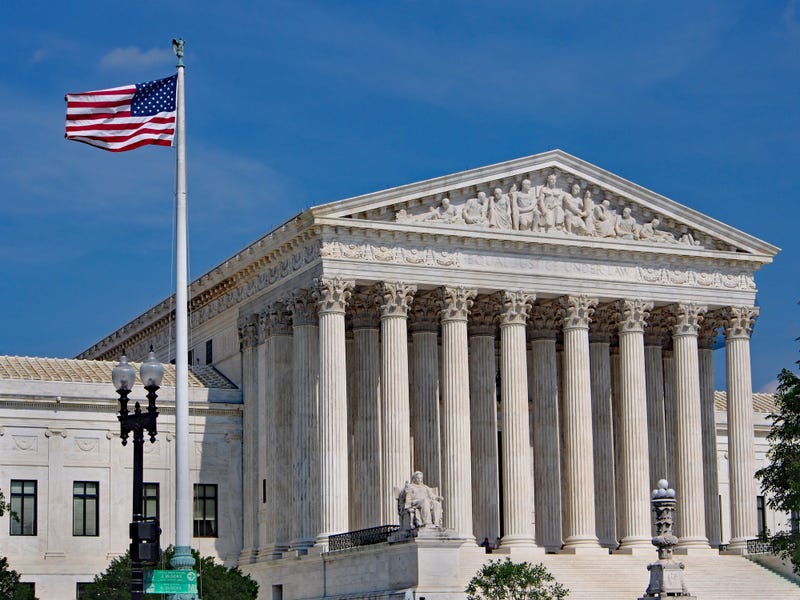
Years after Joseph Kennedy – a former assistant high school football coach in Bremerton, Wash. – was told not to pray midfield during games, the Supreme Court is set to hear oral arguments about the issue Monday.
Kennedy, a former Marine, was told by Bremerton High School to pray either before or after games in a space off the field to prevent students from feeling coerced. However, he refused and was put on administrative leave, according to the school’s legal representation, Americans United. Instead of reapplying to be a coach after the incident, Kennedy filed a lawsuit against the school in 2016.
According to Kennedy’s legal team at First Liberty, “he never coerced, required, or asked any student to pray or told any student that it was important that they participate in any religious activity.”
Kennedy also posted “I think I just might have been fired for praying” to Facebook, which led to national attention and support from president Donald Trump as well as other conservatives.
Since then, the case has wound its way through the courts, from the District Court for the Western District of Washington to the U.S. Court of Appeals for the Ninth Circuit and now, the Supreme Court.
In the past, both the district court and the U.S. Court of Appeals for the Ninth Circuit have denied Kennedy’s motion for a preliminary injunction. Although the Supreme Court also previously denied review, some of the justices expressed possible interest in the case.
According to The Washington Post, “the case calls for the Supreme Court once again to find the line between the First Amendment’s establishment clause, which forbids government endorsement of religion, and its free speech and free exercise clauses, which forbid restraints on the private observance of religion.”
“It never should have been a big thing,” Kennedy, who has moved to Florida, said during a trip to Bremerton last month. “It was supposed to be me and God, that’s it.”
However, the district’s brief claims it was Kennedy’s lawyers who turned the issue into a media circus.
As the case comes before the nation’s highest court, 57 amicus briefs from parties not involved with the case have been submitted to influence the opinion of the court.
One of those briefs is from the Notre Dame Law School Religious Liberty Initiative. It calls on the court to disregard the “endorsement test” used to determine whether public religious expression is private or government speech based on the opinion of a hypothetical “reasonable observer.”
Attorney John Meiser of the Religious Liberty Clinic at Notre Dame Law School said the test is not reliable because it offers “very vague notions of the reasonable – who is reasonable?”
“This case is completely unworkable and the lower courts are in chaos,” due to this lack of clarity, said Notre Dame Professor Nicole Stelle Garnett.
Amicus briefs in support of Kennedy were submitted by former football players, current legislators, religious groups and more. Amicus briefs in support of Bremerton High School include submissions from The School Superintendent’s Association, the American Civil Liberties Union and more.
According to a brief submitted in support of Kennedy by current U.S. Congress members – including Republicans Sen. Ted Cruz of Texas and Sen. Marco Rubio of Florida – decisions against the former coach would “turn the Establishment Clause into a ban on individual religiosity in public schools,” that deprives teachers and students of “fundamental” rights.
However, a group of 11 law professors who filed in support of Bremerton High School argue that positioning the school’s “concern for the religious freedom and equality of its students as nothing more than hostility to [Kennedy’s] own religious practice,” is “a move that turns on its head decades of well-reasoned school prayer jurisprudence.”
When the Supreme Court last saw the case in 2019 four justices were skeptical of the 9th Circuit’s handling of the case: Samuel A. Alito Jr., Clarence Thomas, Neil M. Gorsuch and Brett M. Kavanaugh. At that time, current justices Amy Coney Barrett and Ketanji Brown Jackson were not yet appointed to the court.


